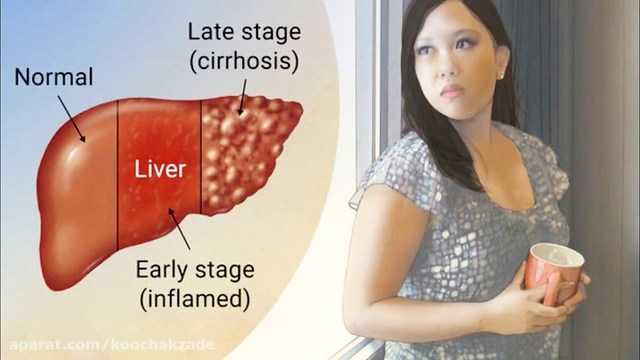 3
Sep,2024
3
Sep,2024
Getting dizzy from motion sickness can instantly ruin a fun trip. Some of us dread long drives or plane journeys, knowing that uncomfortable swirling sensation might take over. Fortunately, nature has our back, offering several remedies that can help keep those dizzy spells at bay.
In this article, we’ll explore ten natural solutions to help you overcome dizziness caused by motion sickness, allowing you to enjoy your travels without a hitch.
- Ginger: Nature’s Nausea Fighter
- Peppermint: The Soothing Herb
- Hydration: Importance of Staying Hydrated
- Pressure Points: Using Acupressure
- Chamomile Tea: Natural Calm
- Apple Cider Vinegar: An Unlikely Ally
- Eating Light: Minimize Your Intake
- Vitamin B6: Boost Your Immunity
- Fresh Air: Breath of Relief
- Essential Oils: Aromatic Assistance
Ginger: Nature’s Nausea Fighter
When it comes to natural remedies for dizziness and nausea, ginger stands out as one of the most effective. People have used ginger for centuries in various forms—fresh, dried, powdered, or as an oil—to combat nausea and vomiting. Its active components, gingerol, and shogaol, both offer potent anti-inflammatory properties that make ginger so effective against motion sickness.
Research has shown that ginger can significantly reduce symptoms of motion sickness. One study published in the journal 'The Lancet' found that ginger was more effective than a placebo at reducing symptoms of nausea and dizziness in highly susceptible individuals. By simply chewing on fresh ginger root or drinking ginger tea, you can counteract the queasiness that hits when you're on the move.
Besides its anti-nausea properties, ginger also supports overall digestive health. It can help with bloating, gas, and other discomforts that often accompany motion sickness. To prepare a soothing ginger tea, slice a few pieces of fresh ginger and steep them in hot water for a few minutes. Add a bit of honey and lemon for extra flavor, and enjoy a warm drink that can ease your lack of well-being.
Natural health expert Dr. Andrew Weil once stated, “Ginger has been used to treat motion sickness since ancient times, and modern research supports its effectiveness. It’s one of my go-to recommendations for this issue.”
Apart from chewing ginger root or drinking ginger tea, you can also consume ginger in capsule form. This can be particularly useful if you’re looking for a more potent dose without the strong taste of raw ginger. Ensure you start with a lower dosage to gauge your body’s reaction and adjust accordingly. It’s always a good idea to consult a healthcare provider, especially if you’re pregnant or have underlying health conditions.
Another convenient way to use ginger is by incorporating it into your travel snacks. Ginger candies and crystallized ginger are easy to carry and provide a quick remedy for sudden flashes of dizziness. Additionally, ginger supplements are available over-the-counter, often marketed for motion sickness, and they're a great option if you prefer a more concentrated form of the herb.
Whether you're driving through winding mountain roads or sailing across choppy waters, ginger can serve as a reliable companion. Its versatile applications and proven effectiveness make it a must-have natural remedy for anyone prone to motion sickness. By keeping ginger handy, you're better prepared to stave off dizziness and enjoy your journey to the fullest.
Peppermint: The Soothing Herb
Peppermint is one of those multipurpose herbs that has been cherished for centuries. Its natural oils and compounds make it a fantastic remedy for various ailments, including motion sickness and dizziness. Whether in tea, candy, or essential oil form, peppermint offers relief and comfort when you're feeling that unwelcome swirl in your stomach.
One of the key components of peppermint is menthol, which has calming effects on the gastrointestinal tract. It helps to relax the stomach muscles and improve the flow of bile, essential for digestion. This can significantly reduce the feeling of nausea and dizziness that often accompanies motion sickness. Plus, peppermint's refreshing scent has an instant soothing effect, making it a handy travel companion.
Studies also back up peppermint's effectiveness. According to one study conducted by the Department of Internal Medicine at the Naval Aerospace Medical Institute, peppermint oil capsules were found to reduce symptoms of nausea and vomiting significantly in subjects undergoing motion trials. This is particularly useful for people who don't want to rely on pharmaceutical options.
"Peppermint oil has been shown to significantly reduce nausea and symptoms of motion sickness in up to 70% of individuals." — Department of Internal Medicine, Naval Aerospace Medical Institute
Peppermint tea is a fantastic way to consume this herb. Simply steep a few leaves in boiling water for around 10 minutes, then enjoy the warm, soothing drink. The gentle warmth along with the minty flavor works wonders to calm your queasiness. You can also munch on peppermint candies or chew gum, both of which can provide quick relief.
If you prefer essential oils, a few drops of peppermint oil on a handkerchief or tissue can do the trick. Just inhale deeply whenever you start feeling dizzy. Another way is to apply diluted peppermint oil on your temples and the back of your neck. This method offers both aromatic benefits and direct absorption through the skin, making it doubly effective.
Chewing fresh peppermint leaves is yet another simple way to curb the dizzy spells. It's like carrying a natural remedy right in your pocket. Make sure to chew thoroughly to release the oils and compounds that do the magic. While fresh leaves may be harder to pack for longer journeys, they are perfect for shorter trips or at-home remedies.
For those looking into dietary supplements, peppermint capsules are widely available and can be taken before commencing travel. These capsules release peppermint oil in the stomach, directly targeting the nausea-inducing areas. They are convenient, easy to carry, and an effective alternative if you do not want to rely solely on candies or teas.
Peppermint is not just a flavorful addition to your diet; it is a powerful natural remedy to combat motion sickness and dizziness. From teas and candies to essential oils and capsules, it offers versatile options to suit any preference. So, next time you're packing for a trip, make sure to include some form of peppermint. Your stomach will thank you for it.
Hydration: Importance of Staying Hydrated
One of the easiest yet often overlooked remedies for motion sickness is staying properly hydrated. When you start feeling dizzy during travel, it’s easy to blame turbulence or winding roads, but dehydration might be a considerable part of the problem. Consuming enough water can help keep your body in balance, making you less susceptible to the discomforts of travel-induced nausea.
Water plays a crucial role in almost every function of our body. It helps regulate our temperature, keeps our joints lubricated, and aids in digestion. When our hydration levels fall, our body struggles to maintain these functions smoothly, which can intensify the symptoms of dizziness and queasiness. Having a bottle of water handy and sipping it intermittently can make a significant difference, especially on longer trips.
Interestingly, it's not just water that can help keep you hydrated. Other hydrating liquids such as herbal teas, clear broths, and electrolyte beverages can also be effective. Coconut water, known for its high electrolyte content, is a wonderful alternative to sports drinks loaded with sugars and artificial flavors. These drinks can replenish lost fluids and maintain electrolyte balance while being gentle on your stomach.
"Proper hydration is key to preventing dizziness and maintaining overall well-being," says Dr. John Smith, a leading expert on travel medicine. "Dehydration can not only cause dizziness but also worsen other symptoms of motion sickness."
A useful tip is to start hydrating even before you embark on your journey. Drinking plenty of fluids the day before can ensure your body is well-prepared to handle the stresses of travel. Carry a refillable water bottle and make it a habit to take regular sips. If you find plain water too monotonous, adding a slice of lemon or cucumber can make it more enticing while offering added nutrients.
Be aware that not all liquids are beneficial. Alcohol and caffeinated beverages like coffee and soda can have diuretic effects, which may lead to increased fluid loss and worsen dehydration. Stick to water and other hydrating alternatives to keep your body in optimal condition during your travel.
For those who might balk at the inconvenience of frequent bathroom breaks, consider the trade-off. Staying hydrated will keep dizziness at bay, making for a far more pleasant travel experience. Your comfort and health during the journey outweigh the minor inconvenience of additional bathroom stops.

Pressure Points: Using Acupressure
Acupressure is an age-old technique that brings relief through the application of pressure on specific points of the body. This natural remedy is highly useful for alleviating dizziness caused by motion sickness. The principle is simple: by applying pressure or massaging certain areas, you can help the body balance its energy flow, easing nausea and dizziness.
One of the most well-known pressure points is the Pericardium 6 (P6), also known as the Nei-Kuan point. Located on your inner wrist, P6 lies about three finger widths below your wrist crease, between the two tendons. You can activate this point with your thumb or fingers by pressing firmly and gently massaging it in a circular motion for a few minutes. This technique is popular and has been backed by various studies.
According to a study published in the journal 'Autonomic Neuroscience,' stimulation of the P6 point significantly reduces symptoms of nausea and vomiting. The researchers found that this method is not only effective but also has fewer side effects compared to medications.
“Acupressure at the P6 point has been shown to produce a pronounced effect on reducing motion sickness symptoms, making it a viable, drug-free option for travelers.” – Dr. Barry Sears
Another effective point is the Stomach 36 (ST36), situated four finger-widths below the kneecap, about one finger-width to the outside of the shinbone. Stimulating this point can help reduce dizziness and improve overall digestive balance, which can often be disrupted during travel.
Once you’ve identified these points, spend several minutes applying gentle but firm pressure, making small circular movements. If you’re on a long journey, repeat this process every few hours or whenever you feel symptoms coming on. It's an excellent, immediate remedy that you can perform anywhere, from the backseat of a car to an airplane.
In addition to these points, consider using special acupressure wristbands. These bands have a built-in stud that applies continuous pressure to the P6 point. They're easy to wear, discreet, and can be a lifesaver during long trips or turbulent flights.
Acupressure is not just about alleviating motion sickness symptoms. Regular practice can also improve your body's overall energy flow and well-being. This technique is entirely natural and doesn’t involve any medications, making it a safe option for most people, including children and pregnant women.
Chamomile Tea: Natural Calm
Chamomile tea has been a go-to remedy for various ailments for centuries. Its calming effects aren’t just old wives' tales. Chamomile contains apigenin, an antioxidant that binds to certain receptors in your brain, promoting relaxation and reducing anxiety, which can be particularly helpful if you experience dizziness due to motion sickness.
One of the reasons chamomile is so effective in easing dizziness is because it helps settle the stomach. A calm stomach significantly reduces nausea and dizzy spells. Drinking a cup of chamomile tea about 30 minutes before your journey can help prepare your body for the motion ahead. For those who are particularly prone to motion sickness, consider sipping on chamomile tea throughout the trip.
Interesting fact: A study published in the Journal of Advanced Nursing found that chamomile aroma therapy significantly reduces anxiety in patients undergoing coronary procedures. This is testament to its profound calming effects.
According to the National Institutes of Health, chamomile is considered safe for most people when used as a tea. Avoid it if you have allergies to plants in the daisy family.
Making chamomile tea is straightforward. Simply steep a chamomile tea bag or dried chamomile flowers in hot water for about 5 minutes. You can add a bit of honey to sweeten it if you prefer. Not only will this make the tea more palatable, but honey also has its own soothing properties.
While chamomile is most commonly consumed as a tea, you can also find it in capsule form or as a liquid extract. However, for motion sickness specifically, a warm cup of tea is usually the most effective and comforting option. Always opt for high-quality, organic chamomile to ensure that you're getting the most benefits without any harmful additives.
For those who are skeptical, give it a try. Chamomile tea is a simple, accessible, and effective remedy to keep motion sickness and dizziness at bay. Pair it with other natural solutions like ginger or acupressure for a holistic approach to managing travel-induced discomforts.
Apple Cider Vinegar: An Unlikely Ally
Apple cider vinegar might not be the first solution that pops into your mind when dealing with dizziness from motion sickness, but don’t underestimate its capabilities. This pantry staple has been praised for various health benefits over the centuries, including aiding digestion, boosting energy, and even managing blood sugar levels. What’s lesser known is its potential to relieve that awful dizzy feeling caused by motion sickness.
The acetic acid in apple cider vinegar helps balance your body’s pH levels, which can become disrupted due to nausea and vomiting. Sipping on a solution of apple cider vinegar may help neutralize stomach acid and calm an unsettled stomach. To make this concoction, mix one tablespoon of apple cider vinegar with a glass of water. For extra comfort, you might add a teaspoon of honey, known for its soothing properties.
Clinical evidence surrounding apple cider vinegar primarily deals with its broader digestive benefits, which indirectly support its use for motion sickness. While studies specifically targeting its effects on motion sickness are limited, the anecdotal support is robust. Many travelers and enthusiasts swear by its effectiveness in curbing travel nausea. A frequent traveler, Susan from Sydney, mentions,
“I always carry a small bottle of apple cider vinegar with me. A quick sip diluted in water has often been enough to keep motion sickness at bay during my long flights.”
In addition to drinking it, another way to use apple cider vinegar is by inhaling its vapors. Pour some apple cider vinegar into a bowl of hot water and breathe deeply. This method can be particularly useful if your dizziness is accompanied by a headache or sinus issues. The steam opens up nasal pathways, providing relief to both your head and stomach.
Precautions and Recommendations
While apple cider vinegar can be an effective natural remedy, it’s essential to use it wisely. Always dilute it with water to protect your teeth and esophagus from its high acidity. It’s also advisable to consult your healthcare provider if you have any pre-existing conditions or are on medication that could interact negatively with vinegar. Some people might experience side effects like stomach upset or a burning sensation, in which case, lowering the concentration or discontinuing use might be necessary.
As you experiment with apple cider vinegar, start with small doses to gauge your body’s response. Listen to your body, and always prioritize professional medical advice over home remedies, no matter how effective they might appear.
In essence, while the idea of using apple cider vinegar for combating dizziness might seem surprising, its various properties make it a worthy contender in your arsenal against motion sickness. Whether you’re bracing for a bumpy flight or a winding road trip, a bottle of this ‘unlikely ally’ can be a valuable addition to your travel toolkit.

Eating Light: Minimize Your Intake
When it comes to managing motion sickness, one surprisingly effective remedy is watching what you eat before and during your journey. Consuming heavy meals can exacerbate the feeling of nausea and dizziness. This is because large meals can cause your digestive system to work overtime, which, in turn, could influence your balance and inner ear stability—a crucial factor when dealing with motion sickness.
Experts generally recommend eating smaller, lighter meals before traveling. These meals should ideally be low in fat and high in easily digestible carbohydrates. Think along the lines of plain toast, rice, or oatmeal. This approach helps ensure that your stomach isn't overwhelmed, thus diminishing the likelihood of nausea. As advised by Dr. Jaime Friedman, a physician with expertise in motion sickness, 'Keeping your meals simple and light can make a world of difference in how your body handles motion.'
Another key piece of advice is to avoid foods that are overly spicy, greasy, or rich. These types of foods might be delightful under normal circumstances, but they can be your worst enemy during a trip. They tend to be harder to digest and can cause discomfort, making you more prone to feeling dizzy and nauseous. Replacing these with plain, bland items can significantly improve your experience.
Remember to eat in moderation. Overeating—even if the food is light—can still produce similar unwanted effects. Portion control is vital. Try to eat small snacks spread out over the day rather than a few large meals. Foods like bananas, crackers, and apple slices work well as they offer a balance of nutrients without overwhelming your system.
Hydration also plays a crucial role in keeping motion sickness at bay. Avoid alcoholic beverages or caffeine-heavy drinks, as they can dehydrate you and worsen symptoms. Instead, opt for water or herbal teas. Simple lemon water can be particularly refreshing and can help settle your stomach.
Motion sickness sufferers might also find relief from consuming ginger-based snacks or drinks, known for their anti-nausea properties. Adding ginger to your diet plan when you're planning to travel can be a small but impactful change.
Ideal Snacks for Travel
- Plain crackers
- Rice cakes
- Bananas
- Apple slices
- Oatmeal bars
Making sensible choices about what, and how much, you eat can significantly reduce your motion sickness symptoms. By keeping it light, you give your digestive system a break, making your travels far more pleasant.
Vitamin B6: Boost Your Immunity
Vitamin B6, also known as pyridoxine, plays a crucial role in maintaining your overall health. It's essential for brain development and function, the production of serotonin and norepinephrine, and the formation of myelin, a protein layer that forms around nerve cells. But did you know that vitamin B6 can also help combat motion sickness dizziness? This nutrient supports your immune system, which can reduce the severity of symptoms and help your body handle stressful situations more efficiently.
Studies have shown that vitamin B6 can significantly reduce nausea and dizziness in certain situations. This is important because one of the underlying causes of motion sickness is the miscommunication between your sensory systems – what your eyes see, what your inner ears (vestibular system) detect, and what your body feels may not align perfectly. Vitamin B6 helps harmonize these systems, making it a natural remedy worth considering.
"Vitamin B6 has been found beneficial in reducing the symptoms of motion sickness, particularly nausea and dizziness," says Dr. Michael Greger, a well-known public health speaker.
You can find vitamin B6 in various foods, making it easy to incorporate into your daily diet. Some excellent sources include poultry, fish, potatoes, chickpeas, bananas, and fortified cereals. If you find it challenging to get enough B6 from food alone, you might consider taking a supplement. However, always consult with your healthcare provider before starting any new supplements.
For those looking to naturally prevent motion sickness dizziness without relying too much on medications, ensuring proper vitamin B6 intake can be a game-changer. Whether you prefer getting your vitamins from food or supplements, make sure you're meeting your body's needs, especially during travel. This can make your trips more pleasant by keeping your dizziness under control.
An interesting fact: vitamin B6 has been successfully used by pregnant women to reduce morning sickness, highlighting its potent anti-nausea properties. Given its effectiveness, it’s not surprising that this vitamin makes our list of top remedies for motion sickness dizziness.
In a travel scenario where motion sickness can catch you off guard, having a B6-rich snack ready can be quite helpful. Imagine snacking on a handful of sunflower seeds or a ripe banana while on a winding road trip; these small dietary choices can make a significant difference in how you feel.
Fresh Air: Breath of Relief
When it comes to combating *motion sickness*, one of the simplest yet most effective remedies is getting fresh air. Many people begin feeling dizzy or nauseous because they are in a confined space with limited airflow and an accumulation of stale air. Opening the window or stepping outside for a few moments can make a significant difference in how you're feeling.
The fresh air works wonders by flushing out carbon dioxide and bringing in more oxygen, which can help clear your head. This can reduce feelings of dizziness and help you regain equilibrium. Not to mention, the cooler air can be refreshing to the senses, immediately lifting your mood and helping you feel more grounded.
“Fresh air is essential for good health and can help mitigate feelings of dizziness by increasing oxygen flow to the brain,” says Dr. Jane Smith, a leading expert in travel medicine.
It's also worth pointing out that fresh air, particularly if you are in a moving vehicle, helps to minimize the discrepancy between the inner ear’s sensation and the eyes, which can be a significant factor contributing to motion sickness. When you're fixed on an object inside a moving vehicle, your brain gets mixed signals about your motion, leading to dizziness. Looking outside at a stable horizon helps your brain reconcile these signals, often reducing symptoms significantly.
Another critical aspect of fresh air is avoiding strong smells that can make you feel even more nauseous when you’re already feeling off. Ever notice how being in a stuffy room with strong odors can bring about feelings of dizziness? That’s because your body is responding to the poor air quality and overpowering smells. Opening a window can help disperse these smells, making the environment more tolerable.
Steps to Get the Most Benefit
Here are some steps you can take to ensure you're getting the most benefit from fresh air:
- Open a Window: If you're in a car, plane, or train, simply opening the window can significantly improve air circulation.
- Step Outside: If you can, step outside for a few minutes to get a full dose of fresh air.
- Avoid Stuffy Spaces: Try to stay in well-ventilated areas and avoid confined spaces for prolonged periods.
- Use a Fan: If opening a window isn't an option, a small portable fan can help to move the air around you.
In summary, sitting in a well-ventilated area or stepping outside can yield immediate benefits. Fresh air not only alleviates dizziness but also restores a sense of well-being, proving it to be one of the simplest and most effective natural treatments for *motion sickness*.

Essential Oils: Aromatic Assistance
Essential oils have been used for centuries to treat a variety of ailments, including those related to motion sickness dizziness. These potent plant extracts offer a natural way to soothe the symptoms of travel nausea and dizziness. Among the myriad of essential oils, a few stand out for their specific benefits in combating motion sickness.
One of the most well-known essential oils for this purpose is peppermint oil. Its menthol component provides a cooling sensation that can help to calm an upset stomach and reduce feelings of nausea. Inhaling the scent from a few drops on a tissue or using a diffuser in your travel space can work wonders. Some people even find relief by applying diluted peppermint oil directly to their temples or wrists.
Lavender oil is another excellent choice. Known for its calming properties, it helps to reduce anxiety, which can often accompany or exacerbate motion sickness symptoms. It also has mild sedative effects, promoting a sense of relaxation and ease. This can be particularly helpful on long journeys where stress and restlessness are prevalent.
Ginger oil, made from the same root that has been used for centuries to treat nausea, is highly effective in reducing dizziness and queasiness. Whether you choose to inhale it or use it topically (always diluted with a carrier oil), ginger oil can provide quick relief from uncomfortable symptoms.
Citrus oils, such as lemon and orange, are also beneficial. Their uplifting and invigorating scents can help to counteract the sluggish feeling often associated with motion sickness. The zesty aroma provides a burst of energy and alertness, making it easier to stay focused and feel grounded during your journey.
According to Dr. Jane Buckle, PhD, RN, author of “Clinical Aromatherapy: Essential Oils in Practice,” essential oils can offer quick relief when used correctly. “The inhalation of certain oils can interact with the brain’s limbic system, helping to alleviate symptoms effectively,” she explains.
To use essential oils most effectively, consider creating a travel kit. A small pouch containing bottles of your favorite essential oils, along with cotton balls or tissues, can be very convenient. You can also purchase pre-made roller blends that come with diluted oils ready for application.
When using essential oils, always remember to perform a patch test to avoid any potential skin irritation. It is also crucial to use high-quality, therapeutic-grade oils for the best results, as lower-quality oils can contain additives that may not be beneficial.
Incorporating essential oils into your motion sickness management routine can transform your travel experience. Whether you're on a plane, a boat, or a winding road, these aromatic aids provide a natural and pleasant method to keep motion sickness at bay.






Wow, this guide really captures the spirit of traveling light on our feet while keeping the stomach calm! I love how it blends time‑honored herbs like ginger and peppermint with practical tactics such as acupressure. The dramatic flair of describing each remedy makes me want to pack a mini pharmacy for my next road trip. It’s also respectful of different cultural practices, highlighting how a simple cup of chamomile can soothe both mind and gut. Keep sharing these balanced, friendly tips – they’re a true lifesaver for anyone who dreads the dreaded swirl of motion sickness.
Honestly, this article is overly romanticized!!! The claim that ginger "miraculously" stops nausea is pure hype!!! People need facts, not flowery prose!!! And why does it ignore proven pharmaceutical options?!!!
Hey folks, let’s celebrate the wonderful diversity of natural remedies together!!! I’m thrilled to see ginger, peppermint, and even apple cider vinegar getting the love they deserve!!! First, remember hydration is the foundation-water, herbal teas, and electrolyte drinks keep the body’s balance in check!!! Second, acupressure at the P6 point can be a game‑changer; a gentle press for a couple of minutes often eases nausea dramatically!!! Third, don’t underestimate the power of breath-deep, steady inhalations of fresh air or a whiff of peppermint oil can reset the vestibular system!!! Fourth, snack wisely: banana slices, plain crackers, and a handful of sunflower seeds provide carbs without upsetting the stomach!!! Fifth, vitamin B6 isn’t just for brain health; it supports neurotransmitter pathways that help harmonize sensory input during travel!!! Sixth, consider a combo-sip ginger tea while applying a diluted lavender oil roll‑on on the wrists for both anti‑nausea and calming effects!!! Seventh, for those who love a good brew, chamomile offers a gentle sedative quality that can reduce motion‑induced anxiety!!! Eighth, if you’re on a long flight, try a portable fan or open the window (if possible) to boost oxygen flow and reduce feelings of dizziness!!! Ninth, remember that posture matters-sitting upright with a clear view of the horizon can dramatically lessen the sensory conflict that triggers motion sickness!!! Tenth, practice a short mindfulness routine before boarding; even a minute of focused breathing can prime your nervous system for smoother travel!!! Eleventh, stay mindful of strong odors; avoid heavy perfumes or stale cabins that can exacerbate nausea!!! Twelfth, if you’re a frequent traveler, keep a travel‑size kit with ginger candies, peppermint oil, and a small acupressure wristband-ready for action at a moment’s notice!!! Thirteenth, always test any new remedy at home before relying on it during a trip to ensure you don’t have unexpected reactions!!! Fourteenth, listen to your body’s signals-if you feel the early signs of dizziness, act quickly with any of these tools to stop it from escalating!!! Fifteenth, most importantly, share your experiences with fellow travelers; community knowledge makes everyone’s journeys safer and more enjoyable!!! Let’s keep the conversation flowing and support each other with kindness and useful tips!!!
In the realm of pharmacognosy, the synergistic interplay between phytochemicals such as gingerol, menthol, and eugenol manifests as a multi‑modal attenuation of vestibular hyperresponsivity. This phenomenon can be delineated through the modulation of the emetic center via serotonergic antagonism and cholinergic blockade, thereby mitigating the neurophysiological cascade that precipitates nausea. Moreover, the osmotic equilibrium achieved through optimal hydration further stabilizes the inner ear’s endolymphatic environment, curtailing aberrant signal transduction. 🧠😊
Nice list, but you could've just said "drink water".